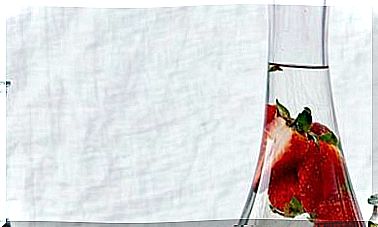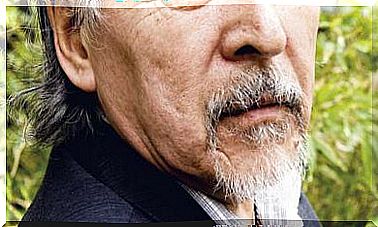8 Keys To Gain Attention And Keep Distractions Away
Every day we are assaulted by multiple stimuli that capture our senses. Protecting our attention span is essential.

You walk through the city and your attention is attracted by the advertising posters on the walls, at the bus stops; there are also the shop windows. And, of course, the music from your mobile filling your ears, calls and messages from friends. It will not be easy for you to reflect without interruptions or simply to savor the light of this splendid day …
How to improve our attention span
- Be aware that you move in a daily life full of “attention thieves”. And without a minimum of effort and vigilance, your attention span will be reduced.
- Avoid doing multiple things at the same time. Use the waiting times (at the doctor’s office, in a line) to focus on your body or your breathing, or to look at the sky, instead of making a call, playing with your mobile, writing a wasap or reading.
- On a regular basis, he eats a meal alone, without speaking, without reading, without radio or TV. Let your attention be directed to the food, its appearance, its taste, the room in which you are.
- Every time you notice that your mind “shoots up in all directions,” spend thirty seconds sitting with your eyes closed, the time focusing your attention on ten breathing movements.
- As far as possible, organize the day so that, for two or three consecutive hours, you are not exposed to digital interruptions (telephone, Internet …). Avoid having music in your ears permanently.
- In activities that require constant attention, do not suffer, but choose yourself the times when there will be interruptions (check e-mails only every hour, leave your seat and loosen up every half hour …).
- Take time to savor the good times in an “animal” way: in front of a beautiful sky or the song of a bird, instead of quickly moving on to something else after saying “It’s pretty,” stop to savor it, without words or thoughts.
- Regularly practice a meditation technique. It will be an island in your day-to-day life that will help you protect your attention span.
We live pending everything
At work, you turn on the computer to write a report, but you also have to respond to e-mails, and in real time because when a new one arrives, you have to open it, you never know, it can be urgent. And answer the phone.
Suddenly, you sigh thinking of a quiet place, without incessant interruptions, where you could relax or work better. Is there such a place, in an environment where everything seems made to capture and shake our attention?
Attention is the ability of our mind to deliberately go to a precise, chosen object, and stay fixed on it for as long as we want. In the animal world, this mental capacity is essential for survival, but it is also important for humans: it is associated with our intellectual performance, as well as our emotional well-being.
The problem is that today, as numerous studies indicate, this capacity is disturbed and threatened. Attention is under more pressure than ever, to the point that some speak of “attention attacks” or “attention theft”.
Our daily environment, indeed, has changed a lot: it is no longer composed only of natural elements, but for the most part it has been made artificial and, therefore, is subject to new influences (advertisements, screens, music productions …) to which our brain has not yet had time to adapt.
The pressure on attention is linked, first of all, to the so-called materialistic society.
In this world of excess there are more products to sell than buyers and the competition is fierce: it is necessary to “catch the eye” and, above all, the brain of the potential customer in an incessant and efficient way.
In addition, there is a hyperconnection of individuals: the Internet, mobile phones or tools for social ties, such as Facebook, lead to an increase in requests for interaction.
More attention, more emotional well-being
It is vital that we protect ourselves from these “contaminations” of care for two reasons. A good reason to do so is to keep our minds in good working order: reflecting (and not just reacting) requires calm and deep attention. Whether it is about life or work, we will not be able to carry out a reflection correctly if it is not like that.
Studies show that if we work in an environment full of interruptions, mistakes multiply, creativity diminishes, and thoughts become shorter and more superficial.
Another good reason is our emotional well-being: several studies, including a recent one from Harvard University, have shown that mind wandering is associated with fewer positive emotions and more negative emotions.
This is explained by several factors : dispersion increases dissatisfaction and frustration (the feeling of not getting to the bottom of things), and the demands of contact exhaust us (exhaustion masked by excitement linked to overstimulation); In addition, lasting well-being is often linked to concentration on what we do (thanks to the feeling of dominance and control).
Protecting our attention span has become one of the keys to our well-being. This undoubtedly explains why meditation techniques are in fashion: one of their implicit components is the regular training of attention, directing it to the breath, to posture, to a mantra …









